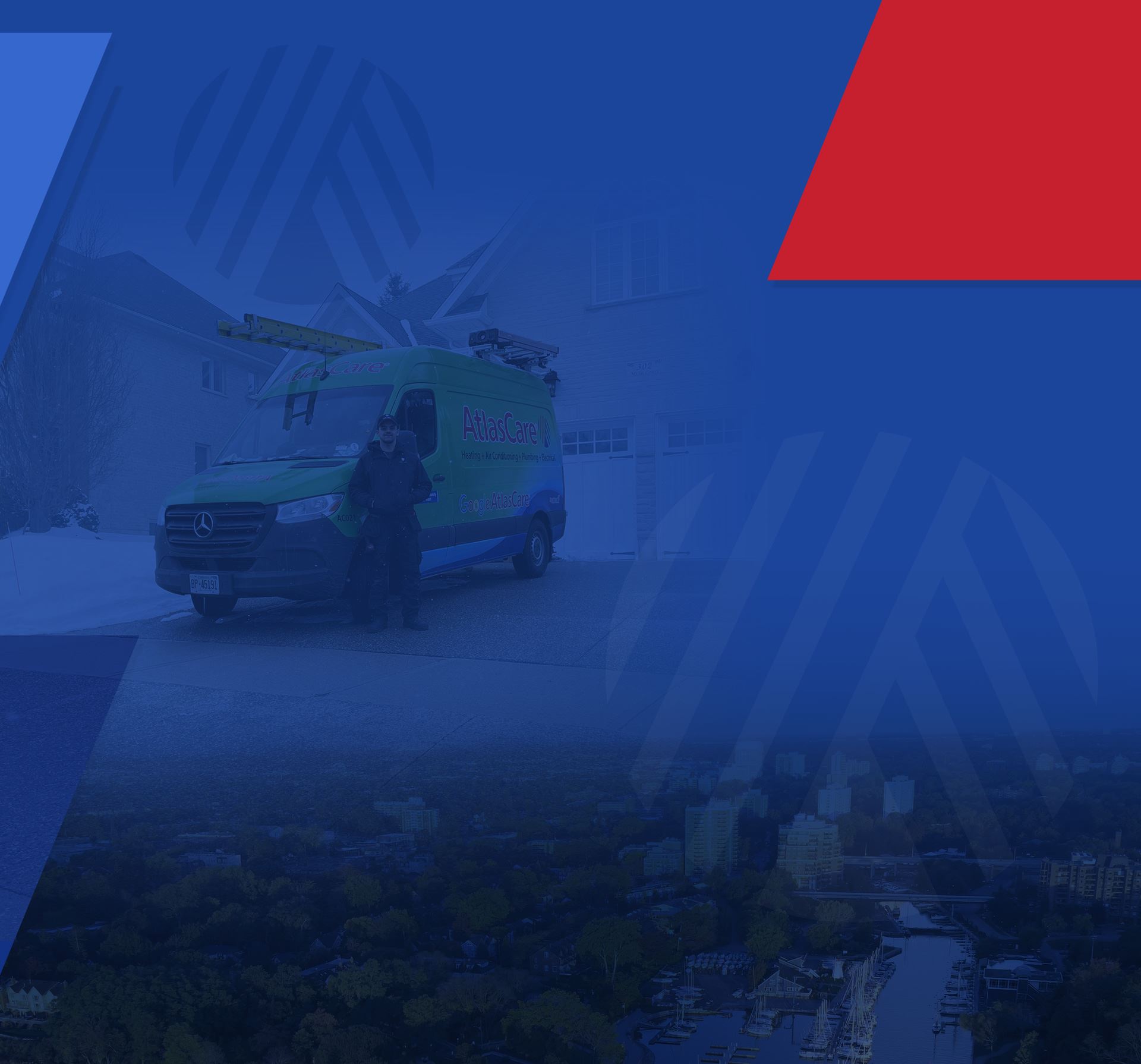Carbon Monoxide Poisoning in the Home
Why Your Older Furnace May Be a Health Risk
If you suspect carbon monoxide poisoning or a leak from your furnace, evacuate everyone from your home immediately. Then contact us 24 hours a day, 7 days a week for emergency service.
A technician came by my home to examine my furnace for a carbon monoxide leak.
“Having a CO leak, that puts you and your family at risk. You have kids, right?”
I felt shaken, but relieved, when his gas detector device registered no carbon monoxide reading. But that was the wake up call I needed to replace my faulty furnace.
Is your older home furnace a health hazard? Read on to learn all about home air quality.
Need to replace your furnace? Financing Available.
What Is Carbon Monoxide?
Most furnaces are gas-burning and produce carbon monoxide (CO), an odourless, colourless and tasteless gas.
This is not unique to furnaces—CO gases are produced by burning any type of fuel: gas, oil, wood, charcoal or kerosene.
What Is Carbon Monoxide Poisoning?
Carbon monoxide poisoning occurs when you breathe in too much carbon monoxide (CO), and it replaces the oxygen in your blood. Without oxygen, cells throughout the body die and organs stop working.
The reality is that carbon monoxide poisoning is very fast-acting and can be deadly in just a matter of minutes. Exposure to CO requires immediate emergency care.
What Are the Signs of Carbon Monoxide Poisoning?
Signs of carbon monoxide poisoning include cold-like or flu-like systems, such as: feeling nauseous, having headaches, or just generally feeling unwell.
What Part Does Carbon Monoxide Play in a Properly Working Furnace?
Carbon monoxide (CO) is produced when gas or oil is burned inside your furnace.
CO is housed within the walls of your furnace’s heat exchanger, which is simply the tubing or metal wall that gets heated when the furnace is running.
When the furnace is working properly, the carbon monoxide gas is routed through the flue pipe and vented safely outside of your home.
A clean, efficiently-burning gas furnace only produces very small amounts of carbon monoxide.
How Can Carbon Monoxide Leak from a Furnace?
As a furnace runs over time, it can start to burn dirtier and create more carbon monoxide gas.
Should your furnace develop a crack in its flue pipes or heat exchanger, this increased amount of CO gas can seep into your family’s home air, producing a dangerous—or potentially deadly—situation.
What Can Be Done to Detect and Prevent a Carbon Monoxide (CO) Leak?
Annual Furnace Maintenance
Annual furnace maintenance is an excellent way to check for carbon monoxide leaks. The technician will come equipped with a gas detector device to check for CO leaks. They may attach it magnetically to your furnace to get a proper reading.
The technician will also check the combustion air opening for blockages, flue pipe for corrosion or leaks (standard furnaces), condensate drain for leaks (high-efficiency furnaces), drive belt for cracks or frayed edges, pilot light to display bright blue (instead of yellow), and the panel for gaps.
Need to schedule your annual furnace maintenance? You can book here.
Air Filter Change
Changing your air filter every 3 months is fast and easy. Did you know that one cause of carbon monoxide leaks is the backup of airflow in your heating system, caused by a clogged air filter?
Proper Furnace Installation
Your furnace could develop problems with venting carbon monoxide if it was installed incorrectly. For example, if your ductwork was improperly designed or your blower motor was installed wrong.
Need to replace your furnace? Financing Available.
Carbon Monoxide Detectors
Carbon monoxide detectors are literally lifesavers. While you are sleeping, these sentinels keep watch on your family, alerting you if there is a CO leak. Be sure to place one on each level of your home, being certain to install directly outside of bedrooms. Vent Cleaning
Always keep the area surrounding your vents clear, being sure to remove debris around the opening like leaves, snow and ice.
Use Portable Generators Outside Only
Please follow this wisdom and never use a portable generator inside your home, garage or shed. Fatal levels of carbon monoxide can build up rapidly and linger for hours, long after the generator has been turned off. This can be a grave danger to you and your family.
Old Furnace Replacement
If your furnace flame is yellow instead of blue, it may be producing high levels of carbon monoxide. Beware: a yellow flame can also mean a potentially fatal gas leak. In this case, you would need to evacuate your family from your home immediately
Other signs that you might need to replace your furnace, include: your older furnace making loud noises when operating, temperature fluctuations throughout your home, or soot accumulating near your furnace register.
Did you know that after your furnace reaches its peak lifespan of 15 years, your system might struggle to evenly distribute heat throughout your house? This can prove costly and an early sign of a deteriorating furnace is a sudden jump in your monthly energy bill.
Carbon Monoxide and Furnace Replacement
In summary, your older furnace might be a health risk and need to be replaced if it is producing high amounts of carbon monoxide.
Steps you can take to avoid carbon monoxide poisoning, include: installing carbon monoxide detectors on each level of your family home (especially outside of bedrooms), booking an annual furnace maintenance, changing air filters regularly, cleaning your vents, never using portable generators inside of your home and having your furnace installed properly.
Of course, when it is time to replace your old furnace: do not fight it. After all, it is for the health and safety of your whole family. You can bet your life on it.
Is your older furnace a health hazard and you need to be replaced? Financing Available.






